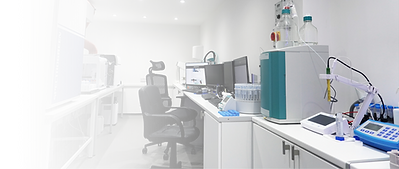ICP Testing


At Reef Zlements, we're not just offering ICP testing — we're investing in the future of reef keeping.
We’ve made significant investments in both advanced analytical equipment and specialist talent, ensuring our testing services meet the highest standards of scientific accuracy. Our in-house laboratory is equipped with state of the art instrumentation, typically reserved for pharmaceutical and industrial analysis — now dedicated to the reefing hobby. Before results are issued, each sample is processed and analysed, with all results reviewed and interpreted by trained analytical chemists who understand both the science and the unique demands of marine aquariums. This enables us to deliver not only numbers but also clear, actionable insights that support coral health and system stability. By bringing advanced chemistry into the hands of reef keepers, we aim to raise the standard of care across the hobby — with faster turnaround times, UK/EU-based support, and a dosing philosophy rooted in accuracy.
When you test with Reef Zlements, you're not just checking your water — you're partnering with a team that’s deeply invested in reefing success through science.
At Zlements, precision isn't just a goal — it's our foundation. Our cutting-edge laboratory operates within a dedicated, positive-pressure cleanroom, which is meticulously designed to minimise and remove contamination, both airborne and surface respectively. Allowing us to uphold the highest standards of analytical integrity and sample purity. We harness the power of advanced analytical techniques to deliver insights you can trust. ICP-OES (Optical Emission Spectrometry), ICP-MS (Mass Spectrometry) for ultra-trace detection, Ion Chromatography for nutrient and anion analysis, Robotic Titration for pH and alkalinity measurements, colourimetry and conductometry for nutrient and conductivity (salinity conversion) measurements.

Our Test Kits
Who is it for?
Beginner to intermediate reef keepers who want a cost-effective, reliable snapshot of key macro and trace elements.
Who is it for?
Reefers who want more than just elemental data, including key nutrient and stability indicators.

Who is it for?
Reefers who also want to test their RODI water, especially in areas with variable tap quality or for diagnosing source-related issues.
Who is it for?
Reefers managing multiple tanks or committed to long-term monitoring.

Who is it for?
Reefers wanting the ultimate precision, sensitive SPS keepers, or aquarists chasing perfect colouration and ultra-precise stability.
Who is it for?
Reefers looking for the full-featured elite testing plus RODI water quality validation. Bulk Savings on the most comprehensive service.

Our Lab
At Zlements, science meets passion, empowering us to push the boundaries of reef chemistry analysis and product innovation — helping you build healthier, more vibrant reefs.
We offer a range of advanced water testing services to take the guesswork out of reefkeeping with Reef Zlements ICP Testing – a service designed for reef aquariums of all sizes.
Below are detailed descriptions of our Standard ICP, Advanced ICP, and ICP-MS testing services:

Our Standard ICP (Inductively Coupled Plasma Optical Emission Spectrometry) Testing utilises our in-house SPECTROGREEN DSOI ICP-OES instrument.
This state-of-the-art equipment features a unique radial dual side-on interface, capturing emitted light from both sides of a vertical plasma with only a single extra reflection. This design provides twice the sensitivity of conventional radial-view models and matches the sensitivity of newer vertical-torch dual-view systems. Recommended by ICP specialists at Spectro for saltwater analysis, our technology ensures consistent and precise measurements, free from matrix interferences.
This detailed analysis provides reef keepers with precise insights into their aquarium's water chemistry, enabling informed decisions for maintaining a healthy marine environment.







